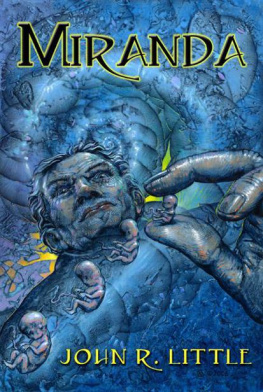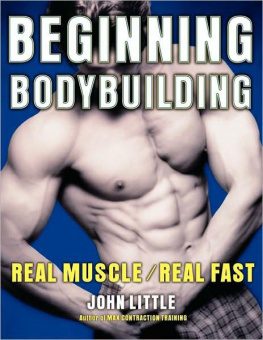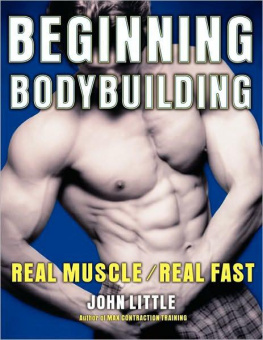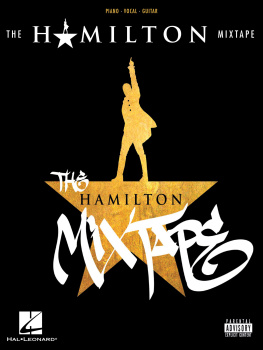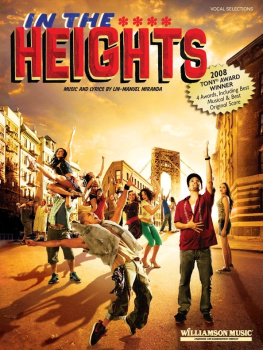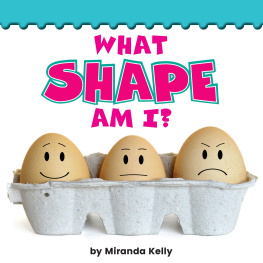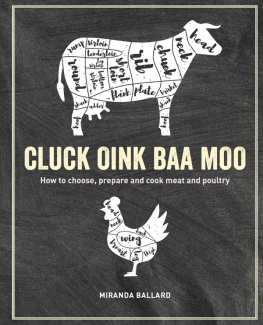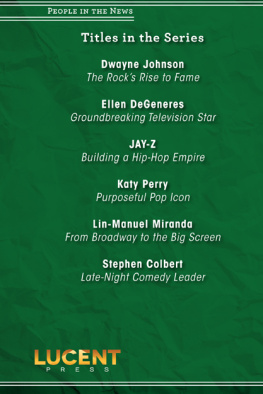John R. Little - Miranda
Here you can read online John R. Little - Miranda full text of the book (entire story) in english for free. Download pdf and epub, get meaning, cover and reviews about this ebook. year: 2011, publisher: Cemetery Dance Publications, genre: Non-fiction. Description of the work, (preface) as well as reviews are available. Best literature library LitArk.com created for fans of good reading and offers a wide selection of genres:
Romance novel
Science fiction
Adventure
Detective
Science
History
Home and family
Prose
Art
Politics
Computer
Non-fiction
Religion
Business
Children
Humor
Choose a favorite category and find really read worthwhile books. Enjoy immersion in the world of imagination, feel the emotions of the characters or learn something new for yourself, make an fascinating discovery.
- Book:Miranda
- Author:
- Publisher:Cemetery Dance Publications
- Genre:
- Year:2011
- Rating:5 / 5
- Favourites:Add to favourites
- Your mark:
- 100
- 1
- 2
- 3
- 4
- 5
Miranda: summary, description and annotation
We offer to read an annotation, description, summary or preface (depends on what the author of the book "Miranda" wrote himself). If you haven't found the necessary information about the book — write in the comments, we will try to find it.
Miranda — read online for free the complete book (whole text) full work
Below is the text of the book, divided by pages. System saving the place of the last page read, allows you to conveniently read the book "Miranda" online for free, without having to search again every time where you left off. Put a bookmark, and you can go to the page where you finished reading at any time.
Font size:
Interval:
Bookmark:
Miranda
A novella by John R. Little
Cemetery Dance Publications
Baltimore
2011
Copyright 2011 by John R. Little
All rights reserved. No part of this book may be reproduced in any form or by any electronic or mechanical means, including information storage and retrieval systems, without permission in writing from the publisher, except by a reviewer who may quote brief passages in a review.
Cemetery Dance Publications
132-B Industry Lane, Unit #7
Forest Hill, MD 21050
http://www.cemeterydance.com
The characters and events in this book are fictitious.
Any similarity to real persons, living or dead,
is coincidental and not intended by the author.
ISBN-13: 978-1-58767-263-7
Cover Artwork Copyright 2011 by Alan M. Clark
Digital Design by DH Digital Editions
Dedication
Miranda is for my beautiful and brilliant daughter, Peri. I thought of you when puzzling through some of the challenges in this story, Kiddo. Youll always be in my heart.
Turning, Turning Back
An Introduction by Gary A. Braunbeck
We can never know what we want, because, living only one life, we can neither compare it with our previous lives nor perfect it in our lives to come.
--Milan Kundera, The Unbearable Lightness of Being
In 1940 novelist Robert Nathan wrote a remarkable novel entitled Portrait of Jennie , the story of an impoverished new York artist who one day meets a young girl in the park who is dressed in clothes that are decades out of date. He draws a sketch of her, sells it to an art dealer, and over the course of the novel, builds a successful career out of painting portraits of this same girl who, every time he meets her, seems to have aged only a few years, despite their meetings taking place sometimes decades apart. If youve not read Nathans novel, you should seek it out, because Nathan was arguably the great-grandfather of what is now called slipstream fiction. He was definitely a fantasist ahead of his time, an author of exquisite fabulist fiction before that term even existed. Portrait of Jennie is considered by many science fiction and fantasy scholars to be the first genuine time-slip story. (If that term is one youre not familiar with, then check out Kurt Vonneguts masterpiece Slaughterhouse-Five and meet Billy Pilgrim, who has become unstuck in time.)
What set Nathans work apart from other fantasy being written at the time was that he never apologized for his decidedly, classically Romantic world-view. Theres a great deal of darkness and loneliness in Nathans work, but there is also a fierce, even morally vindictive, belief underlying all of his novels that laugh it off as you might in these ever increasingly cynical times the power of love is the single most determining force in the spectrum of human fate and experience.
It would not surprise me in the least were I to learn that John R. Little is a Nathan reader, because throughout reading the astonishing novella you hold in your hands, I was constantly reminded of Nathans romanticism, imagination, and his ability to take the simplest concept and infuse it with an almost mystical depth. (This is not to say that John R. Little is a Nathan imitator, by no means; were one to say that, one would also have to point a finger at Jonathan Carroll, Gabriel Garcia Marquez, Kobo Abe, and William Kotzwinkle. Not bad company to be in, if you ask me.)
Miranda is, to oversimplify it, a time-slip story. Its also a love story in the vein of Richard Mathesons Bid Time Return , a metaphysical mystery worthy of Umberto Eco, and a profound study in loneliness and alienation that at times seems like a Bradbury-like variation on Camus The Stranger .
Have you figured out by now that this is not an easily pigeonholed tale?
Like Littles previous works, Placeholders and the Bram Stoker Award-nominated The Memory Tree , Little is fascinated with the exploration of regret, self-redemption, longing, humankinds place and purpose in the quantum structure of the multiverse, and, of course, love. His work tackles big themes, asks big questions, but never becomes so concerned with grappling with said questions that he forgets to tell the most fragile, intimate of stories.
And Miranda is a very fragile story; not in structure or its writing that, like Nathans, is so sharp, so lean and poetic and crystalline, that the words often threaten to shimmer right off the page but in its subject and the emotional content that lies at its core. Yes, its a time-slip story (youll know that as soon as you read the first line), but again, like all of Littles work it never succumbs to the temptation to deal with something as banal, trivial, or clichd as, say, the time-travel paradox. Little isnt interested in playing with pulp-era gimmicks here, he wants to explore the timelessness of longing and the ramifications of a single human beings inability to let go of the hope that he or she will one day meet their soulmate, the love of their life, the one person with whom they can travel through the remainder of their days and never look back in regret or sadness.
Over the past decade I have been asked to provide introductions or afterwords for numerous books, and while I have always felt honored to oblige these requests, only three times in my career have I felt privileged to do so; the first was when my friend, the poet Christopher Conlon, asked me to write an introduction to his stunning short story collection, Thundershowers at Dusk (Christopher is a better short story writer now than I can ever hope to be); the second time was when Thomas F. Monteleone and Charles L. Grant asked me to write the introduction to their short story When Dark Descends, revised for its re-release by Borderlands Press (not only because I fervently admire both writers work, but because it turned out to be the last published piece of fiction by the late Mr. Grant); and the third time waswell, is , for Miranda .
I am now going to say something that very well may be seen as hyperbole by some, but I would remind these folks that, in all the introductions and afterwords I have provided, I have never said anything even remotely close to the following:
Mark this moment, because you are about to read a piece of work a masterpiece, in my opinion -- that will outlive all of us, and will one day take its rightful place beside such influential works as those I previously mentioned in this introduction and Ill add one more to that list: Daniel Keyes Flowers for Algernon.
In short: you are about to experience one of the most moving, superbly-written, and exhilaratingly imaginative piece of fiction that its been my privilege to encounter. And when youre done, when youve read the last, heart-wrenching chapter of this amazing novella, come back and re-read the quote from Kundera I used at the start, and see if Little hasnt given it a new depth, forced you to see it from a parallax point of view.
I envy you this first reading of Miranda . Do not read this piecemeal; set aside a block of time so that you can become lost in Littles mesmerizing prose and his spellbinding story. And it probably wouldnt hurt to have a few tissues on hand as you near the end; few novellas these past twenty-five years have packed the emotional wallop of Miranda s final sequences. Understated, poetic, and with such raw honesty you may very well feel that Little has somehow managed to glimpse into your soul.
I wish Id written Miranda . But I will be content to know that I was among the first to experience it and that, for a brief moment, it was mine and mine alone to hold close to my core, and feel that it written just for me.
This was written just for you. Treasure it. Mark the moment. And know that love matters. Even in these bleak times.
Thank you, John R. Little, for introducing us to Miranda.
Now go and meet her for yourself. I dont think youll ever be the same again.
Next pageFont size:
Interval:
Bookmark:
Similar books «Miranda»
Look at similar books to Miranda. We have selected literature similar in name and meaning in the hope of providing readers with more options to find new, interesting, not yet read works.
Discussion, reviews of the book Miranda and just readers' own opinions. Leave your comments, write what you think about the work, its meaning or the main characters. Specify what exactly you liked and what you didn't like, and why you think so.

